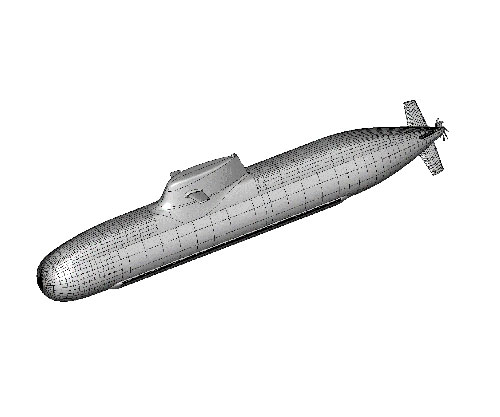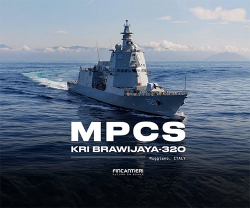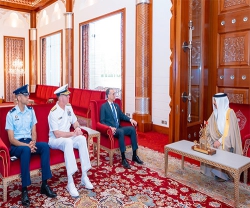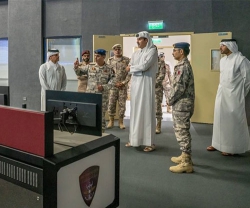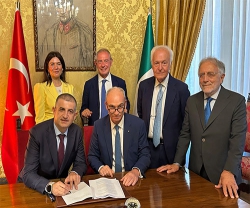Fincantieri and OCCAR (Organisation Conjointe de Cooperation en matiere d’Armement, the international organization for joint armament cooperation) signed the contract for the construction of 2 new-generation submarines.
This contract, in which Fincantieri will act as prime contractor, envisages an option for 2 additional units and is part of the new U212NFS (Near Future Submarine) acquisition program of the Italian Navy.
The total contract value for the first two vessels, including relevant logistics support, amounts to 1.35 billion euros.
The project is an evolution of the U212A program carried out in cooperation with the German thyssenkrupp Marine Systems, which resulted in the production of 4 submarines for Italy – “Todaro”, “Scirè”, “Venuti” and “Romei”, delivered by Fincantieri between 2006 and 2017 – and 6 for Germany. According to highly reliable analyses, the technological content of these air-independent propulsion submarines determined the shift in the balance between nuclear and conventional vessels in the postwar period.
With the first two deliveries scheduled for 2027 and 2029, the U212NFS program stems from the need to secure adequate underwater spatial surveillance and control capacity, considering the future complex scenarios of underwater operations and that the operational lifetime of the 4 “Sauro” class submarines, currently in service, is drawing near. It also aims at upholding and further developing Fincantieri’s acquired strategic and innovative industrial know-how, as well as consolidating the technological lead attained by the company and its supply chain, enhancing the presence of technologically-advanced component parts developed by Italian industries on board.
Our national submarines carry out many different tasks for the benefit of the community on a daily basis, responding to requests coming from the Government or the Nation’s main Alliances, NATO and EU. They range from purely military missions to operations pertaining to freedom of navigation, anti-piracy, keeping the energy supply routes safe (due to the presence of seabed resources or underwater infrastructure), observance of international law, fighting terrorism, defending external borders, and safeguarding maritime infrastructure, including essential off-shore and underwater infrastructure, not least detecting the presence of whales.
Fincantieri CEO, Giuseppe Bono, commented: “We are proud that the recognition of our skills by the Italian Navy and the German partner has brought about a change in the relations, thus securing - on the one hand - our role as design authority, on the other as prime contractor. We are going to take a real technological leap forward compared to the submarines of the previous class, starting with the design and the combat system developed along with Leonardo, which we are in charge of integrating on-board. This will allow Italy to continue being a main actor among the limited group of Countries that can build such advanced units”.
“Once again, a qualified supply chain, made up of small and medium-sized enterprises of the sector, will benefit from the driving effect triggered by our activities, which will in turn generate manifest economic growth in terms of GDP, employment, and research and development advancement,” he added.
Fincantieri is one of the world’s largest shipbuilding groups and number one for diversification and innovation. It is leader in cruise ship design and construction and a reference player in all high-tech shipbuilding industry sectors, from naval to offshore vessels, from high-complexity special vessels and ferries to mega yachts, as well as in ship repairs and conversions, production of systems and mechanical and electrical component equipment, cruise ship interiors solutions, electronic systems and software, infrastructures and maritime constructions as well as after-sales services.
With over 230 years of history and more than 7,000 vessels built, Fincantieri has now 18 shipyards operating in four continents and nearly 20,000 employees.

